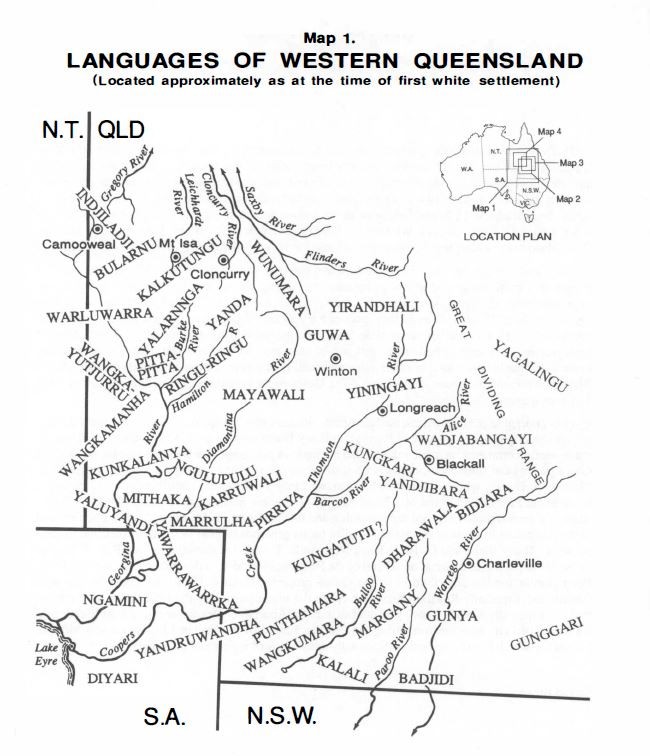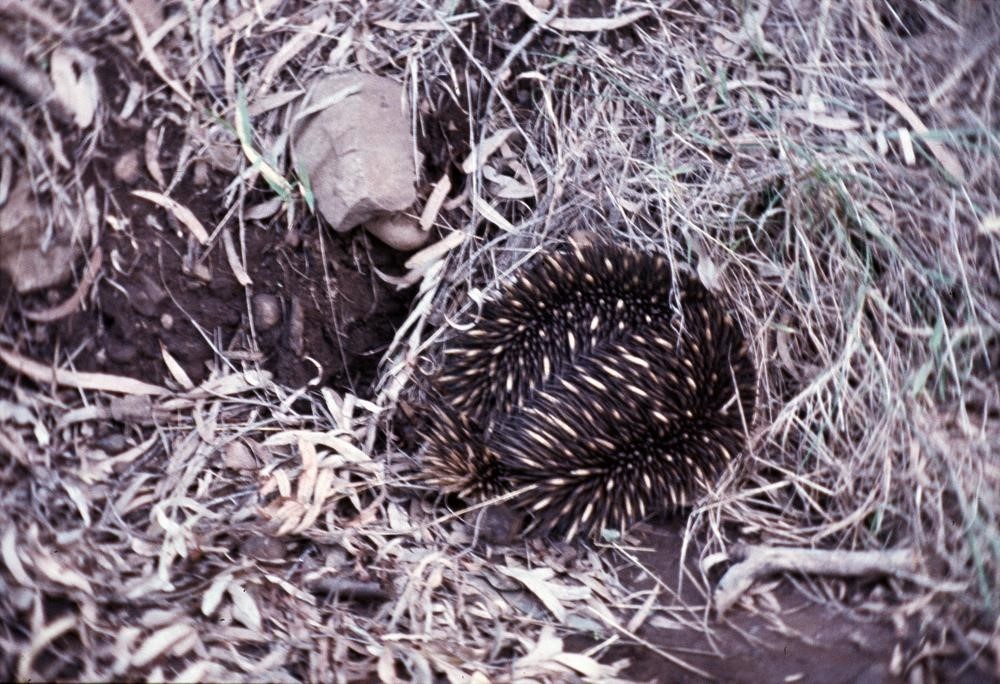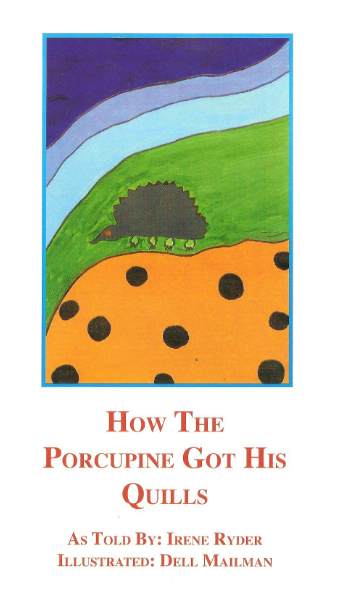2019 International Year of Indigenous Languages: Word of the Week - Week Thirty-Eight.
By administrator | 17 September 2019
As part of State Library's commitment to the 2019 International Year of Indigenous Languages, we will be promoting a 'word of the week' from one of the 125+ Aboriginal and Torres Strait Islander languages and dialects from across Queensland.

This week's word of the week is barbirra meaning 'echidna'. It is from the Margany language of South-West Queensland along the Paroo and Bulloo Rivers. The language takes in the area from Quilpie south to Thargomindah.

Margany is also known Mardigan, Marukanji, Marganj etc. and is related to the Gunya/Gunja language of the Cunnamulla region. Margany also shares words with the neighbouring Bidjara and Gunggari languages. Gavan Breen's article "Margany and Gunya" is the source for this week's word.

Barbirra or similar words are used for 'echidna' in a range of languages across South-West and Central-West Queensland. This week's word of the week continues the season theme as September is when echidna puggles are born and carried by the mother echidna. When the spikes get too tough, the mother echidna will dig a burrow for the puggle.

Echidnas, also known as 'porcupines', in many Aboriginal communities feature in many stories, both traditional and contemporary. The above image shows a Gunggari story which is part of a compilation set of 8 booklets produced by the Nalingu Aboriginal Corporation in Mitchell. This selection and other children's books will be featured in the upcoming Jarjum Stories exhibition in kuril dhagun showcase.
Join the conversation as we post a new word for each week!
Week Thirty-Eight 17-23 September 2019.
#slqIYIL #IYIL2019 #IYIL #IY2019WordoftheWeek #SLQIndigenousLanguages
Desmond Crump
Indigenous Languages Coordinator, State Library of Queensland
State Library of Queensland Aboriginal and Torres Strait Islander Languages Webpages
State Library of Queensland Aboriginal and Torres Strait Islander Languages Map
Jarjum stories: A kuril dhagun showcase focusing on children’s books and Aboriginal and Torres Strait Islander languages. Opens 19 October 2019.
Spoken: celebrating Queensland languages: A major exhibition exploring the survival and revival of Aboriginal and Torres Strait Islander languages throughout Queensland. Join in the many talks and events to celebrate the rich and diverse languages spoken today. Opens 21 November 2019.
UN IY2019 Links
UN International Year of Indigenous Languages webpages
UN International Year of Indigenous Languages Resources
References
The word of the week has been sourced from the following item in the State Library collections.
Source: Breen, J. G. (1981) “Margany and Gunya”. In Handbook of Australian languages, vol. 2, eds. RMW Dixon and B Blake, 274-393. J 499.15 HAN
Further Reading
Other materials in the State Library collections relating to Margany and neighbouring languages include the following:
Breen, J.G. (1990) Salvage Studies of Western Queensland Aboriginal Languages. J 499.15 bre
Breen, J. G. (1981) “Margany and Gunya”. In Handbook of Australian languages, vol. 2, eds. RMW Dixon and B Blake, 274-393. J 499.15 HAN
Curr, E. M. (1887) The Australian Race: its origins, languages, customs, place of landing in Australia and the routes by which it spread itself over that continent. RBF 572.994 cur
Holmer, N. (1983) Linguistic Survey of South-Eastern Queensland. J 499.15 HOL
Nalingu Aboriginal Corporation (1999) The tiger snake (and other stories). JUV 499.15 TIG
Wafer, J. and Lissarrague, A. (2008) A handbook of Aboriginal languages of New South Wales and the Australian Capital Territory. J 499.15 WAF
Comments
Your email address will not be published.
We welcome relevant, respectful comments.